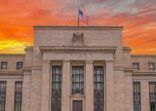Some emerging markets went through an adjustment process in 2013, witnessing massive outflows, when the US Federal Reserve first talked about the prospect of tapering its quantitative easing programme.
Flavia Cheong, Aberdeen’s Asia investment director, equities, noted that compared to 2013, current account deficits are now smaller in some economies, real interest rates are turning positive, and real exchange rates have depreciated, helping to curb imports and manage deficits.
“Uncertainty over the exact timing and questions surrounding the strength of the global recovery has already triggered the return of market volatility after a prolonged period in which volatility had been notably absent. However, we’re quietly confident Asian markets will prove to be resilient,” Cheong said in a recent report.
While acknowledging that much of the recovery in Indian stocks and currencies has been on the back of euphoria over the new government’s reform measures, Cheong said the country has also made significant strides in addressing the economic weakness that had been the top investor concern.
Indonesia, which figured in the list of the so-called “fragile five” emerging economies and was most affected in 2013, has also managed to restore monetary policy credibility but still faces headwinds.
“The end of financial stimulus policies isn’t a bad thing. [These policies] have made a mockery of traditional methods of gauging value and risk. Their demise will drain markets of speculative capital and signal a return to investment fundamentals and the search for quality.”
“We believe the long-term benefits outweigh the inevitable short-term pain. Markets will be better off in the long run.”
Strong dollar, not bad
While the dollar is likely to emerge stronger with an expectation of faster recovery in the world’s largest economy, Cheong said it would be wrong to conclude that a stronger dollar is bad for emerging market stocks.
“A look at the relationship between emerging market equity performance [relative to developed markets] and the strength of the US dollar over the past quarter century shows long periods – in 1993, 1999, 2005, 2010 – when emerging markets outperformed despite dollar strength. Therefore the correlation is, at best, casual.”
The normalisation of monetary policy is based on the assumption of a sustainable US economic recovery and that bodes well for Asian export growth.
“This is set to benefit almost every economy in the region. Despite a couple of high-profile exceptions, most run a current account surplus – one of the reasons we continue to like Asia as an investment destination.”
Dollar strength
Within six months, Aberdeen AM expects the dollar to trade at its strongest levels against the euro since Europe’s sovereign debt crisis. Against the yen, it forecasts the US currency to be the strongest since December 2007.
Cheong added that the dollar, and assets denominated in the currency, is even more attractive due to the divergence of US central bank policy from that of the European Central Bank, which is contemplating further stimulus that will weaken the euro, and the Bank of Japan, where a weak yen forms a central component of the government’s economic policies.
















